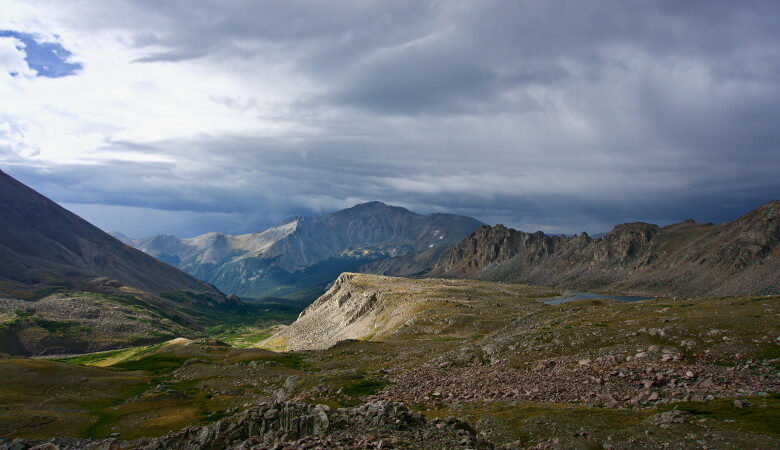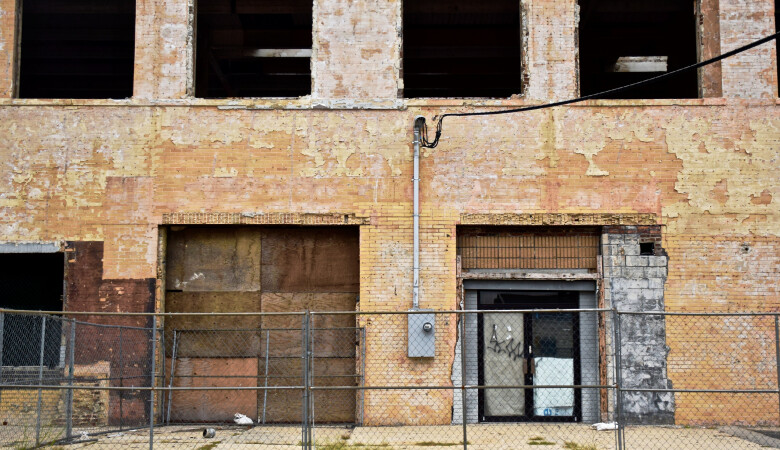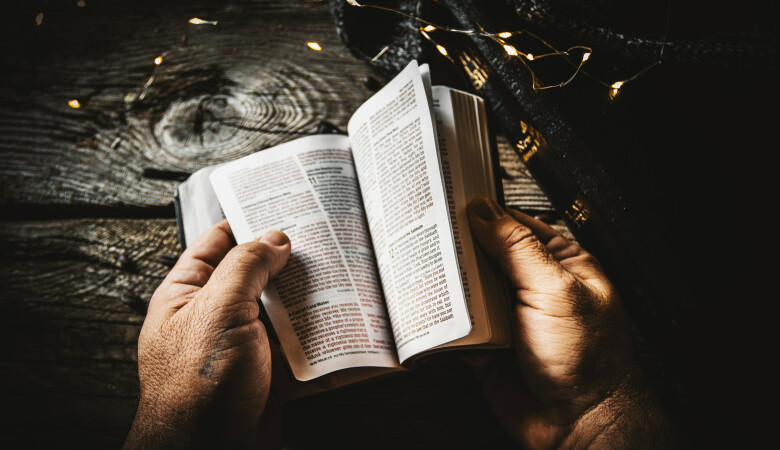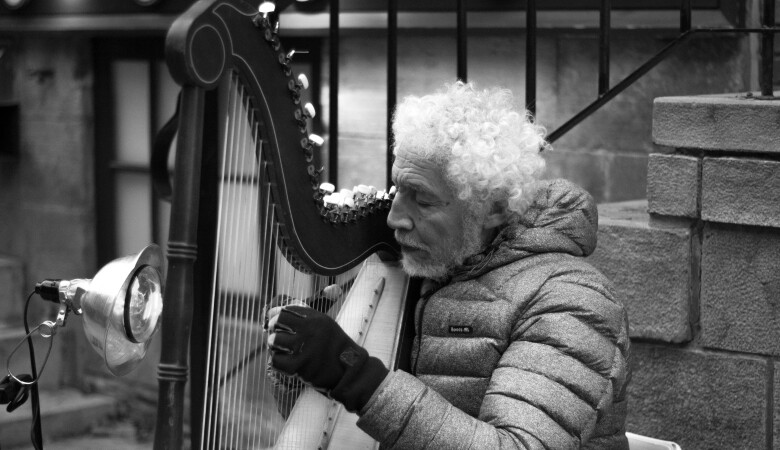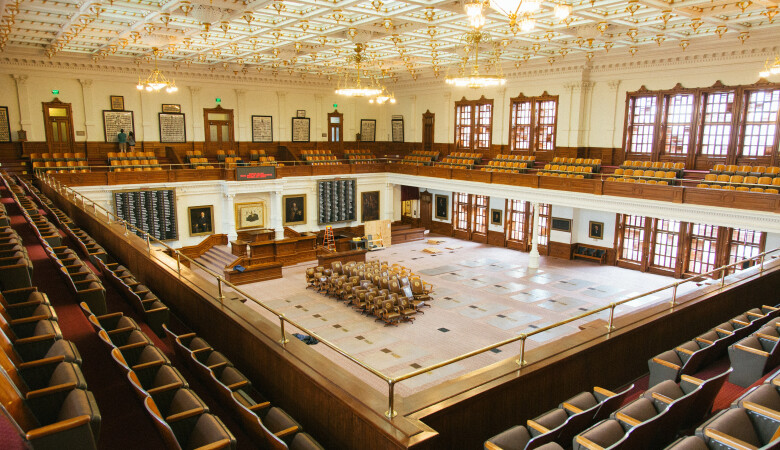Supernatural Power and Compassion (Matthew Sermon 68 of 151)
February 11, 2007 | Andy Davis
Matthew 14:13-21
Introduction
What a great text we have to look at today, the feeding of the 5,000. What a marvelous thing it is. It's one of the few acts of Jesus that's recorded in all four Gospels, Matthew, Mark, Luke and John, and therefore, it stands with great magnitude. It shines with the brightness that I think will be encouraging to all of us.
I have to confess some weakness to you this morning. I was thinking about it this morning, and the idea came to me to express to you my own weakness, and why this text specifically encourages me in that weakness. A few weeks ago, I woke up and I immediately sensed that something was different, something was wrong in my house. I got up from my prayer time and it felt very chilly. I noticed, even more significantly, the lack of the constant hum of our heating system and that it wasn't on. I thought, "What's going on?" So, I went down and I started playing with the thermostat and I couldn't get the heating system to go on, and that was a big deal that morning. It's not a big deal other times of the year, but that morning it was a big deal. First thing I thought as an engineer, is I said, "Alright, you gotta go down and check the circuit breaker, be sure that it hasn't tripped over." I went down and all the circuits were fine. So, I said, "Okay, this is money is what this is. " And so, it was. But that it wasn't the circuit breaker wasn't true. There was another circuit breaker in our crawl space that had tripped, and the worker found it. I decided to give you an extra layer on this illustration so you didn't think me a fool and say, "Check the circuit breaker, Pastor, that's the first thing I would have done." Well, I knew that, but I didn't know there was another one in there. The worker said, "I put it back over, but it's weak. It's old and weak and it's going to keep tripping on you. There's no problems, it just you need a new circuit breaker." So, we got a new circuit breaker. Now, what is the circuit breaker? A circuit breaker is a little device that protects your home from electrical fires if the current is drawn too much. It just trips and it just goes over and won't let all that power go where it could cause some damage. It's essential to the use of electricity safely in a home. That's a good analogy for my weakness. We had a weak circuit breaker, and it just was tripped. When I face the things that God is asking me to do, when we face the things that God is laying in front of us to do, we can easily trip over and say, "I can't do it, I just cannot do it, it's too hard for me."
We keep talking about these two infinite journeys. To be perfect inwardly, like Christ is perfect, and then outwardly to look at the world and see all of its overwhelming needs and to think that God has actually taken those needs and in some sense laid them right at our feet. I get it right out of the text. They don't need to go away; you give them something to eat. Do you feel the weight of that? Do you ever trip over sometimes when you look at the countless millions that have never heard the name of Jesus in the 10/40 window? When you think about the problem of AIDS in Africa, AIDS orphans, when you decide to venture forth and educate yourself so that you can feel some pain and to feel some compassion, and it hurts. Pretty soon you're at that point, where you're just like, "I don't know what I can do." It could be anything, there could be any of the needs around us. It could be the urban ministry right near us. We see the needs of single parents and the needs concerning gangs and drugs and violence and all that and we just trip over. There's nothing we can do. It could be evangelism, you may even look at your company where you work, and you know that there's a lot of people that don't go to church. Some of them don't seem to know even the basics about the gospel, not in some foreign country of 10/40 window, they don't know it here, they've never been told. You start feeling overwhelmed, you just trip over.
Well, how do we not trip over? How does that not happen? I think we do it by looking at Jesus, the author and perfecter of our faith. It is an ever-increasing faith; it causes us not to trip over as greater and greater needs are laid at our feet. Jesus called his disciples again and again, "Oh, you of little faith." I want an increased faith in myself, so I don't just trip over and give up. I want to be able to do that, but the only way I can do it is by looking at Jesus. So, we come to Matthew 14:13-21, we come to the feeding of the 5,000 with a yearning, with a specific need. Lord, help me to face the things you're putting at my feet, without tripping over, so that I can face it and trust you and see you put huge amounts of power through me, power that ordinarily would cause me to trip over, that the power of the Holy Spirit can flow through me, and I can actually do something in this hurting world. That's what's in front of us this morning.
The Astounding Compassion of Jesus
So, let's look at Jesus, let's look at how He faced the situation that He faced when He crossed the Sea of Galilee. Let's remember the context. Last week as we were looking at Matthew, John the Baptist had been executed. What a terrible thing, John the Baptist's head cut off to satisfy a king in response to a dancing girl. What an awful thing that is. I can assure you that it doesn't hit us the way it hit Jesus. Jesus was a human being. He had emotions, great emotions, perfect emotions, so when He received the news that John the Baptist had been beheaded, and when He heard probably also the circumstances of what happened, He had one desire, He had one drive, and that is to be alone with his Heavenly Father, that's what he wanted for himself. He was extremely and genuinely grieved and sorrowed by what happened to John the Baptist.
Later in Matthew's Gospel, you will see in Matthew 23, Jesus talks about Jerusalem and how they kill the prophets and stone those sent. He takes all of the martyrs that there have been, from the blood of righteous Abel to the blood of Zechariah, son of Berechiah, who was murdered between the temple and the altar. All of this will come on this generation. He thinks that way. He's got all the martyrs in his mind. He knows them, He knows their suffering This isn’t just a straight killing, and it isn't even just a martyrdom. This is John the Baptist, his cousin, his beloved forerunner, the one that He had put in harm's way, by his will, now dead. Jesus is not surprised, not that, it's just that He has emotions, He has compassion. That's going to be the center of the text here for us in terms of Jesus's reaction. It's a matter of his compassion. Look at verse 13. What are Jesus's desires, what are his needs? You said, "Well, Jesus didn't have any needs." Well, sure he did. He needed to eat while He was on the Earth, He needed to breathe, He was a human being. What did He need in verse 13? When Jesus heard what had happened, He withdrew by boat privately to a solitary place. There's three words that tell you what his needs are: He wants to be alone, that's what He wants. He wants to be alone. Now, you can't imagine how not alone Jesus was on the average day of his ministries. He was crushed by people, constantly crushed by people. At this moment, He just wanted to be alone. He even said in the account in Mark, to his disciples, "Come apart so you can be by yourselves for a while." That was his intention. And He intended to leave them by themselves and go up by himself and pray.
Jesus frequently withdrew into times of solitary prayer for strengthening. He would get up a great while before dawn and pray. That's how he prayed, that was the source of his strength, so He withdrew by boat privately to a solitary place. Notice again the end of the account verse 22 and 23, which is so important. After all of it is done, the feeding of the 5,000, all of that ministry, when all of that is done, look what happens. Verse 22, "Immediately, Jesus made the disciples get into the boat, and go on ahead of him to the other side, while he dismissed the crowd," This is a very strong Greek word, He compelled them to get in the boat, forced them to go, and then He dismisses the crowd. Then what does he do? Verse 23, “After he dismissed them, sent them all away, He went up on a mountain side by himself to pray and when evening was there, when evening came, He was there alone.”
You see the consistency of Jesus's personal needs throughout the account. But what happens? He gets into the boat to be alone, goes across and the crowd, the very one that he was trying to get away from, had walked around the lake and were waiting for him when he got there. Surprise! There's the crowd. Look at it, verse 13 and 14, "Hearing of this, the crowds followed him on foot from the towns and when Jesus landed, he saw a large crowd," the very people that he's trying to escape. This is the picture of the way it frequently goes in our lives as well, right? You want to be away, and the world crushes in on you and presses in on you. But here we see Jesus's selfless compassion. This is not a small crowd, this is 5,000 men plus women and children, a huge amount of need, a huge amount of pressure, and He lands and look what it says, verse 14, "When Jesus landed and saw a large crowd, he had compassion on them." Compassion. His heart was moved for their needs, He forgot about himself. Like a servant, like a good servant does, He forgets his own needs, He forgets his own situation and He goes out to others and meets their need. He didn't roll his eyes, He didn't sigh, He didn't get frustrated, He didn't say, "Don't you understand what I'm going through at this particular moment? I don't have anything to give you." He didn't do any of that. Instead, there is a river of compassion flowing up from inside him that caused Him to deny himself at that moment. He immersed himself in the overwhelming needs of this crowd.
Now, I want to stop and just have a word of application here for us, because you're going to forget, and maybe I will, anyway, toward the end. What would you have done? Let's make it a little more applicable right now. Let's say you just received a diagnosis that your spouse has very serious cancer. It’s unclear what's going to happen, it's going to be very, very tough ahead. You’ve been crying most of the day, you get home and the phone rings and there's someone from church, they've got a flat tire, and it's raining. Do you get in the car and go help them or do you tell them what's going on in your life right now, what you're going through? Is that what you do? I know what I would do on my natural, normal day. Come on, be honest. What would you have done? Or you ladies, there's a call. Would you be willing to make a cover dish for tomorrow's meeting? It's like, "Do you understand what I'm going through?" We take our suffering like a trump card and it trumps whatever comes our way at that moment, and we just can't do it. Or perhaps you get in the mail one of those mailers from a Christian aid agency working in Africa, working with orphans, and you look at it and you just quickly set it aside. You say, "You don't understand what I'm going through. I'm going through this great suffering." But look at Jesus, how is he? What is he like? Let's not focus here, let's go right to the end of his life. We see it incredibly in the final hours of his life as He's carrying his cross to his own execution, going to Calvary. Some women from Jerusalem are gathered around, and they're weeping and wailing for him and he said, "Do not weep for me, but weep for yourselves." He's up out of himself and He's saying you ought to weep for yourselves. And after being nailed to the cross, what does He say? "Father, forgive them, they don't know what they're doing.” He looks down and He sees his mother and He realized she's not going to be cared for by believers, because his brothers haven't come to faith yet, and He says to John, "Behold your mother." And to Mary, "Behold your son," and He gets them together, so that John takes care. From that day forward John took her into his home and cared for her. Who is he thinking about? He's got to arrange that thing between John and Mary. And then there's the thief on the cross, "Remember me, Lord, when you come in your kingdom." "I'll tell you today, you'll be with me in paradise."
The Overwhelming Needs of the People
Jesus makes seven statements from the cross and three of them are other-centered, that's amazing. He's not going through a hard time; he is going through hell on the cross. He is nailed to the cross, He is drinking a cup of God's wrath and He's thinking of others. None of us has the credentials, friends, to compare with that. That stands over me and it will stand over me the rest of my life to cause me to be ready to be compassionate, even in the middle of my own struggles and my own suffering. What would you have done? Let me ask a better question, what would you like to do? Is that more hopeful, more encouraging? Not what have you been doing, but what would you yearn? Blessed are those who hunger and thirst for righteousness. Would you like to be better? Would you like to be more like Jesus? Here's this example right in front of us. What met him when he got out of that boat? Overwhelming needs. Why do they trek so far on foot to come to see Jesus? First of all, their dedication to Jesus is astonishing. They want to be with him. Jesus is without question the most magnetic person in history. "No one ever talked like this man," said some that went to arrest him. His miracles were compelling. There's just a draw to Jesus, people just wanted to be near him. His demeanor was perfect and God-like, his personality unlike any that anyone had ever seen. The crowd couldn't get enough of being with Jesus. But that's not really why they went. They went because they had needs, they personally had needs and they felt those needs. Many of them were sick and Jesus was the only one who could care for them. Others were fascinated by his teaching and wanted to get away from the humdrum of their everyday life, so they felt those needs.
In John's account of this, the next day, they come back for more felt needs to be met. Jesus says, “No, no, I did not descend from heaven to earth to be your personal chef. I'm not going to be feeding you every day of your lives. God and his marvelous providence will take care of that. He will abundantly meet your needs. Do not labor for the food that spoils, but rather for that which endures to eternal life, which I will give you.” He's causing them to lift their eyes off their stomachs up to the heavenly needs that they have. In this account we see Jesus's priority structure. You have to really look across the four Gospels to get a full sense of his priority structure, it doesn't come so clearly in Matthew. But I think if you put the thing together, you're going to start seeing how Jesus started sorting out those needs as He got off the boat and He saw this huge crowd, and all of their overwhelming needs. Listen to how Mark's Gospel said he sorted it out. In Mark 6:34, it says, "When Jesus landed and saw a large crowd, he had compassion on them, because they were like sheep without a shepherd, so he began teaching them many things."
That's an eye-opener. I've heard it said that you can't share the gospel to hungry people, they can't listen to you until their stomachs are full, right? You could extend it and say you can't share the gospel with or teach spiritual things to people have significant health needs. Meet their health need, then they can hear the gospel. Meet the felt needs, then they'll listen to the spiritual needs. That's not Jesus' approach. He said, "We have got to go to the heart of the matter, we have got to deal immediately with your number one need, and your number one need is spiritual, and the remedy is the word of God." He puts the teaching of the word of God over everything else that He will do for them. He preached the gospel to them. He does the same thing, by the way, with the paralytic in Matthew 9. You know, it's amazing as you look at this, they bring the paralyzed man to Jesus. If you were to ask him and his friends, the guys who dug through the roof, and you say, "What is your number one need right now?" What's he going to say? "I need to walk, I'm paralyzed, I can't move, I can't earn a living, I need to walk, I need to be free from this paralysis." But what did Jesus do? When Jesus saw their faith, He said to the paralyzed man, "Take heart, son, your sins are forgiven." He went right to the heart of the matter. That is our number one need, to have our sins forgiven before Almighty God. That's what Jesus would say is our number one need. It doesn't matter what any of your other needs are that you think are so pressing. The number one need is to have our sins forgiven in the eyes of an almighty God, and so Jesus taught them many things.
If you're here today and you don't know for sure that your sins have been forgiven by faith in Christ, you may tell me, "No, I've got five or six other greater needs." No, your number one need is to repent and believe in Jesus, for the salvation of your soul, that you might have eternal life. Believe it or not, for us Christians, we who have already believed, we have that ongoing need for cleansing too. It's not like once you believe, then from then on, you don't need to be covered. We need to be covered the rest of our lives and we will be, that's the promise of justification, ongoing forgiveness and cleansing and cover. But this is our number one need. Then comes the healing of the sick, Priority number two. Then comes the feeding of the hungry, priority number three. And then comes sending them home, priority number four. It's a remote place, why would you want to be here? We're done, go home. There's nothing else. So, there's the four priorities. They needed the Gospel. They needed the sick healed. They needed their empty bellies filled, and then they needed to go home and go about their lives.
The Insufficient Resources of the Disciples
The next thing in the account we meet is the insufficient resources of the disciples, and this is where we make our entry into the text, the insufficient resources of the disciples to meet any of those needs, frankly. Look at verse 15, "As evening approached, the disciples came to him and said, ‘This is a remote place, and it's already getting late. Send the crowds away so they can go to the villages and buy themselves some food.’” The disciples had some compassion, just not much. The teaching would have taken a long time. The healings would have taken a long time. Jesus preferred not to heal the whole crowd with a word, which He could have done easily. He preferred to have an encounter with people, talk to them, draw them in, and that would have taken time. By this time, it is very late. They're out in a remote area, there's no village, very little vegetation. There's certainly no fast food or grocery stores. It's a problem. The disciples began to be concerned for the crowd; they had some compassion on the crowd. Perhaps they thought their master was too absorbed in his spiritual work. “I have food to eat that you know nothing about.” There's a lack of practicality there, they're thinking, and they need to come and tell Jesus, "Send the crowd away so they can get something to eat. Are you forgetting that we have that basic need?" Jesus hadn't forgotten anything. He was just dealing with everything in the proper order.
Secondly, the disciples clearly had a little food, just not much. Now, I don't know how much they brought for themselves. We have on record later in Matthew 16 that they forgot to take food. So, talk about who's absent-minded. They didn't any. It could be that they're really concerned about themselves. "Send the crowd away so we can go to the villages and buy some food. We don't have any food." We don't have any idea how much food the disciples had. We do know that there was a boy there that had five barley loaves and two small fish. The little boy's dinner, five little barley loaves and two fish. They had a little food, just not much. Jesus clearly wants to involve his disciples in the process. Could He have handled this thing himself, alone? No question about it. He wants to draw them in to the solution to the problem, and He wants to draw us in too. He had Matthew write it down, and Mark, and Luke, and John. He wants us to feel the weight of, "They don't need to go away. You give them something to eat." He draws them in.
What is Jesus' motive? His central strategy for the rest of human history is to work his Kingdom advance through his disciples. The whole world is starving for forgiveness and love. Many in the world are starving for healing. Some in the world are literally starving for food. H wants to take all of that and put it at the Church's feet and say, "They do not need to go away. You give them something to eat. You take care of them." He gives repeated commands to his disciples to draw them in. For example, He says, "Bring me the five loaves and the two fish." He gives a command in Luke's Gospel, "Have them sit down in groups of fifty each." That's a little more specificity than we have in Matthew's Gospel, but He told them to... He directed his disciples to organize the people.
Then He commanded his disciples to distribute the food as it was being miraculously produced, so they're involved in the food distribution. Then He commands them to go get baskets and collect up the broken pieces so that nothing would be wasted. They're involved in that. They're involved right across in every aspect. He wants them involved. He wants us involved. That brings us immediately to our need, and that is the supernatural power of Jesus to meet every need. He's going to do it through the inadequate resources of the disciples. That's very important for me as a Christian, that's He actually going to meet overwhelming need through the inadequate resources I have to offer, and in that way, He's going to glorify himself. He's going to show his great power by taking weak, inadequate people like you and me, and actually doing incredible things through us.
We see the supernatural power of Jesus. He takes the five loaves and the two fish, and He uses them. Why? It’s to teach us to share. We all need to share. We need to learn to share, is that it? Well, I'm not against sharing. I don't want you thinking that I'm here to say that I think we ought not to share. I think we ought to share, but if the Sunday School lesson goes to that and that's it, we have missed the point. The point is not to teach us to share. The point is to see the supernatural power of Jesus making up the deficiencies that we cannot make up. That's what it is. It's the supernatural power of Jesus here. Other than that, five loaves and two fish isn't going to go far, and the disciples knew that very well. It's really amazing how they come up with these naturalistic explanations for this— basically, everyone brought more than enough for themselves and everyone else to share, but they were being stingy, they were holding back. So, this really isn't a miracle so much as it's an example of sharing that, like an avalanche, a little rock starts, and then, before you know it, you have 12 baskets of broken pieces left over. The count in Mark's Gospel said they had no food, so that settles it for me. It's not like they had it and didn't want to share it. They had none. They didn't bring any. That's what the account says there.
Notice that Jesus uses the five loaves and the two fish as such. He doesn't change them to steak and watermelon, much as you may have liked that or whatever. You got barley loaves out, and you got fish. That's what you got. What went in, came out. There’s a key principle in that too. What we bring to the situation, He takes it and uses it. For me, this may be one of the most convicting aspects of all, is that what I give actually does make a difference. That causes me to feel guilty about those things I don't give, do you see? If there were no connection... We bring five barley loaves and two fish, and lo and behold he turns it into steak and watermelon, we don't see a connection at all. He can do the steak and watermelon without the five loaves and two fish. But He wants us to see a connection between what we bring to the situation, and the actual ministry that occurs and the way the problem gets solved. It could be the 10-40 window. It could be the needs of AIDS orphans in Africa. It could be the needs of the urban poor right around us. It could be any one of a number of needs. He is going to actually take what we have in our hands, and present to him, and He'll use it to solve a problem, but He's going to add his supernatural power.
Look at what He does in verse 19, "He takes the five loaves and the two fish, and looking up to Heaven, He gives thanks and breaks the loaves. Then He gave them to the disciples, and the disciples gave them to the people." This is a consistent posture of Jesus when it came time to eat. He's looking up to Heaven, and He's giving thanks to God for the food. He does this over-and-over, many times. As a matter of fact, the two disciples on the road to Emmaus, they didn't know who Jesus was until they took the bread that they're sitting... “He broke it and gave thanks. Then their eyes were opened, they knew it was Jesus.” Jesus does this again and again at the Last Supper. He takes the bread and gives thanks. He takes the cup and gives thanks.
In the feeding of the 4,000, He takes the food given and gives thanks. The glowing heart of the miracle? The glowing heart of the miracle is the ability that God has to create something out of nothing. That is the miracle. It's not a miracle of sharing. It's a miracle of creation. I tell you, anyone who has trouble believing this miracle, they have trouble believing the very first verse of the Bible. "In the beginning, God created the Heavens and the earth." Now, which is harder? To create the nebula and the stars, all of them that are near and far, to create the planets, to create the earth and the fullness thereof, everything in it, all of the ecosystems that God created, or take a boy's five loaves and two fish and make more loaves and fish out of it?
This is a creation of matter, of something out of nothing. And notice the continuation, the barley loaf becomes lots of barley loaves. The fish becomes lots of fish. And I started thinking about this, it must have been cooked fish. Ready to eat. It came out of Jesus' hands ready to eat. Imagine them all scrounging for firewood trying to cook the fish. The boy's mother had at least thought enough to cook the fish, so out it came ready to eat. Cooked fish. Don't stumble over this. The barley loaves weren't just grain ready to be ground for bread; it came out more loaves. God had thought of every need, and it was met. Creating something out of nothing, and we see the evidence of total satisfaction in the twelve baskets. We could have them just... Laid out here on the stage, and they'd be filled with fragments. Complete satisfaction. The barley loaves and the fish are just a symbol of what God will do in Heaven. The rich and full satisfaction of every need in Heaven. This is an incredible miracle. Don't minimize it, either. He didn't feed the 5,000. Oh, there were 5,000 men, plus women and children. I say to you, it is nothing compared to the satisfaction you'll feel in your souls when you see God face-to-face, when you dwell with him forever. When you sit at the table with Abraham, Isaac, and Jacob in the Kingdom of Heaven and you feast. How richly satisfied you will be then because it says in Psalm 16, verse 11, "You have made known to me the path of life, you will fill me with joy in your presence with eternal pleasures at your right hand." The 15 basketfuls of broken pieces, that is a picture of complete and total satisfaction.
Lesson: Look Upward, Not Outward
What is the central lesson of this text? The central lesson is to look upward, not outward or inward. Do you realize that Jesus consistently gives his disciples impossible commands? To the paralyzed man in Matthew 9, He said to him, "Rise and walk." It's impossible. To Nicodemus, He says, "You must be born again." How can a man enter into his mother's womb a second time and be born again? It's impossible. To his disciples in Matthew 5:48, He said, "You must be perfect as your Heavenly Father is perfect." That's an impossible command. If you don't think so, you don't know yourself. It's an impossible command.
In Revelation 4, there's John on the Isle of Patmos, seeing a door standing open in Heaven, and Jesus' voice comes like a trumpet and says, "Come up here, and I will show you what must take place after this." How is he going to do that? He can't fly. It's an impossible command. Later in this very same chapter of Matthew, Jesus will give Peter an impossible command. Peter's in the boat, Jesus is walking on water, and Jesus says to Peter, "Come. Walk on water, Peter." Another is Matthew 28, "All authority in Heaven and earth has been given to me, therefore go and make disciples of all nations." It doesn't just say, "Preach the Gospel." It says be successful in the preaching of the Gospel, make them followers of Christ and baptize them and teach them to obey everything that I have commanded. Can I do that? Can you? These are impossible commands, and Jesus delights to give them. Why?
Because along with the impossible command, He gives the supernatural power to meet the command. And thus, we are humbled, and He is glorified. To the paralyzed man, He says, "Rise and walk,” and immediately the man starts feeling feelings in his body that he has not felt in years, and he knows he can do it, and he gets up and walks to the glory of God. When Jesus says to Nicodemus, "You must be born again." I'm convinced Nicodemus was born again. I don't know that it happened in John 3, but I think by the end of John's Gospel, Nicodemus has been born again. He feels within himself a change he could not explain, except by saying, "I'm like an entirely new person. It's like I've been born again. The spirit of God did it." In Matthew 5:48, Jesus says, "You must be perfect as your Heavenly Father is perfect." Brothers and sisters, when the Lord is done with us, what are we going to be, but perfect as our Heavenly Father is perfect, how? By his supernatural wonder-working power in us. We will be perfect. To John on the Isle of Patmos, “At once, I was in the spirit, and there before me was a throne in Heaven." So, the command, "Come up here," is immediately met by the supernatural power in the spirit to do so. It's a clear example of what I'm talking about. And what about the command, "Make disciples of all nations”? Has God sent forth his spirit? By his power, has it happened for 20 centuries? It has. All over the world, people are being converted. People are being changed. They're being transformed. The wonder-working power of Almighty God.
Why does he do it? Why does he give us commands that we cannot obey? He does it to teach us, to train us, to test us.
In John's Gospel [John 6:5], He says to Philip, "What should we do for this huge crowd? Where should we get bread for all of them?" He asked them, he initiates the question. It says in John 6:6, he asks this only to test him, for He knew already what He was going to do. So, what is the test? — to teach us to do what Jesus did. What did Jesus do? He looked upward to God. God basically puts you in a box with no window, no door, nothing. You're just in a box, and you can't do it. But the ceiling is off, and you can look up to Heaven, and you can lift your hands and you can thank God for that situation. You say, "Lord, move in a mighty way. Send forth your power to do what I cannot do. Send forth your power for an infinite, internal journey. I can't defeat sin in my life. It's too hard for me. Lord, send forth your holy spirit, and enable me, Lord, to overcome sin in my life. To be perfect as my Heavenly Father's perfect day-after-day. God, you have laid the needs of the world at my feet. I can't do it. The 10-40 window, billions of people never heard of Jesus. Millions of people with physical needs that are beyond me. Ministries I cannot do." It's to teach us to look upward, not outward at the trial, not inward at your resource, and say, "Well, I can do this. I got it. I can do an evangelistic ministry. I can do urban ministry. I can minister the AIDS orphans. I can do it." That's arrogance. Or, "I can't do it. I can't do it. I'm not going to do anything." That's despair. Arrogance and despair are two sides of the same coin. Self-reliance. God wants us to throw that coin away and look upward, and say, "Oh, God. We cannot do it. Give me supernatural power to meet this impossible command." And that's what he's called on us to do.
Application
Let's begin by meditating on the greatness of Christ. Understand this: Jesus has compassion like we can't even imagine. He is a river of compassion. That means whatever needs you brought in this sanctuary here today, and I don't minimize them, believe me, I don't, Jesus is compassionate toward those needs. He knows what you're feeling. He cares about you. Meditate on the greatness of his compassion and meditate on the greatness of his power to meet every need. Take your needs before him in prayer, tell him what they are. Lift up your hands in prayer and bring those needs and lay them at his feet. He is compassionate and kind-hearted, and he'll meet your need.
But secondly, in the midst of that, realize, "There's some other people that are hurting too around me, and maybe because of a focus on my own problems, I haven't done anything for them. I've neglected to care. I want to imitate Christ's compassion. I want to care about needy people around me. I want to care about the needs of the poor." And if I can urge you to trust God to meet your needs... Do you realize that John the Baptist had it right when he said, "I tell you that out of these stones, God can raise up children for Abraham.”? Can you do that? Was that an overstatement? No. He created Adam out of the dust of the earth, He can do anything. If you're having a financial problem, God is able, out of the stones, to give you enough money to meet that need.
If you've got a medical need, He can speak the word and you're instantly healed. He can heal the whole world with a word. He wouldn't even have to speak the world. In John 4, He heals the royal official's son without saying a word. He just says, "Your son is healed, go home." He didn't even say anything, He just thought it and it was done. If you have a financial or medical need and you have prayed about it and nothing's happening, it's for a purpose in your life. God is working a purpose, trust Him to meet your need and He will meet it in due time. Trust him to meet your need. Right out of this text, He will meet every need in his good time.
What I really want to do is challenge to you to see what God could do through you supernaturally. The world's too big for us, isn't it? Do you feel overwhelmed? When you look at the need of the hungry, and you look at the needs of urban ministry, you look at needs of international ministry, you look at the needs of the 10-40 window. You look at just the needs of your fellow co-workers who are around you who don't know Jesus. It's overwhelming, isn't it? It's easy to get discouraged. Can I urge you to just learn to not look inward for the resources, not look outward to get depressed at what's going on, but look upward to Jesus and trust in him to meet every need?






